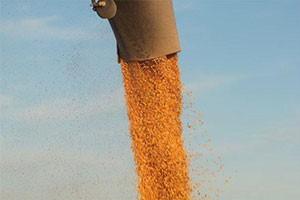Brazilian regulators paved the way Thursday for imports of U.S. corn following a short crop, according to industry sources.
The National Biosafety Technical Commission, known as CTNBio, met and authorized the outstanding biotech products needed to open the Brazilian market for U.S. corn exports.
While imported corn may still be subject to traceability measures given the expectation that some products would only receive approval for use as food and feed and not environmental release, local industry is expected to bring in as much as 1.5 million metric tons in the coming months to meet their feed grain needs.
Brazil has faced a significant shortfall in its 2015/2016 corn crop, particularly in its second winter crop, with an estimated 16 million metric tons less produced this year than in 2014/2015. This has halved exports and prompted imports from regional producers Argentina and Paraguay. To date, the United States has not been able to fill the demand due to lack of approvals of some biotech products used by U.S. farmers.
The U.S. Grains Council (USGC) staff and consultants in the organization’s Washington, D.C., office and the region have worked closely with biotech companies, Brazilian industry and the U.S. Department of Agriculture (USDA) as permission was being sought for U.S. imports and will continue to engage to ensure coming trades are conducted successfully.
Last week, Cary Sifferath, USGC senior director of global programs, and Alfredo Navarro, the Council’s consultant in Brazil, traveled to Sao Paulo to meet with key industry organizations and USDA Foreign Agricultural Service (FAS) staff in Brazil to assess the situation and provide information on the U.S. corn market.
The effort to allow access for U.S. imports shows the growing importance of policies to enable trade in the absence of synchronous biotechnology approvals.
The coming trades between countries that typically compete for corn sales also shows the fluidity and diversity in the global grain market, in which U.S. producers are typically able to cover grain needs from even large corn producers when crops are short.
In turn, the United States typically imports a small amount of corn from Brazil each year based on logistical costs and other factors. In 2012/2013, following a major drought, the U.S. was a large importer of corn and Brazil’s fourth largest customer.
More information from today’s CTNBio meeting is expected to be posted to the website here.


